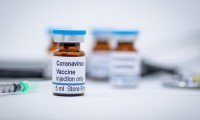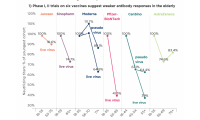-
UK medicines regulator gives approval for first UK COVID-19 vaccine
- Source: drugdu
- 373
- December 3, 2020
-
Closing In On The Cause Of Alzheimer’s Disease
- Source: drugdu
- 391
- December 2, 2020
-
Moderna’s Phase 3 COVE study for its COVID-19 vaccine
- Source: drugdu
- 155
- December 1, 2020
-
Data Byte
- Source: drugdu
- 355
- November 27, 2020
-
How do Coronavirus Antibody Tests Work?
- Source: drugdu
- 166
- November 25, 2020
-
Gaps remain in immunization logistics and real-time tracking of vaccine storage and demand
- Source: drugdu
- 235
- November 24, 2020
-
‘We will be ready to distribute within hours of authorization’
- Source: drugdu
- 396
- November 23, 2020
-
Gaps remain in immunization logistics and real-time tracking of vaccine storage and demand
- Source: drugdu
- 320
- November 22, 2020
-
FDA authorises first home self-testing kit for COVID-19
- Source: drugdu
- 340
- November 21, 2020
-
China’s Sinovac reports mixed findings in early coronavirus vaccine trials
- Source: drugdu
- 143
- November 19, 2020
your submission has already been received.
OK
Subscribe
Please enter a valid Email address!
Submit
The most relevant industry news & insight will be sent to you every two weeks.











